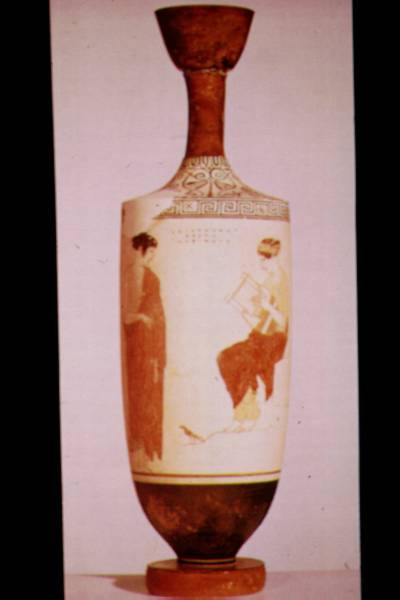|
|
 |
||||
|
|
||||
 |
||||
|
The White Ground technique (technically, a special type of red-figure ware) comes into use in the late 6th century and reaches its peak development in the Classical period. The painter covers the vase in a chalky white slip and then paints in the figures, often using a variety of colors. The result is somewhat reminiscent of ancient frescos. This technique is associated mainly with small lekythoi which were dedicated as grave offerings. Decoration:
White ground vases we study in Year 13: Penthesileia Painter, 460-450, pyxis pp.67-68
|
| [Home] [Overview] [Black figure] [Red figure] [White ground] [Links] |